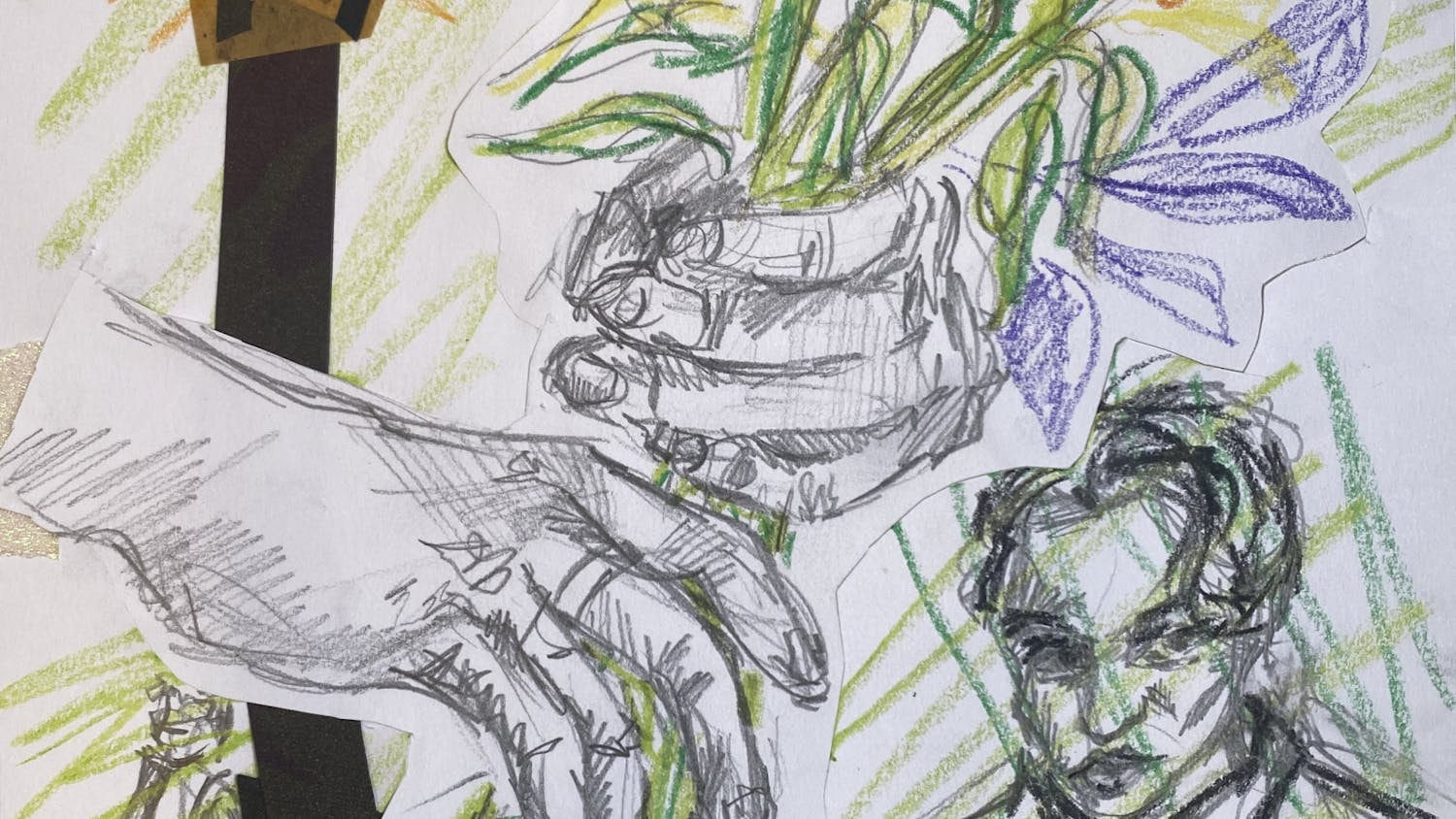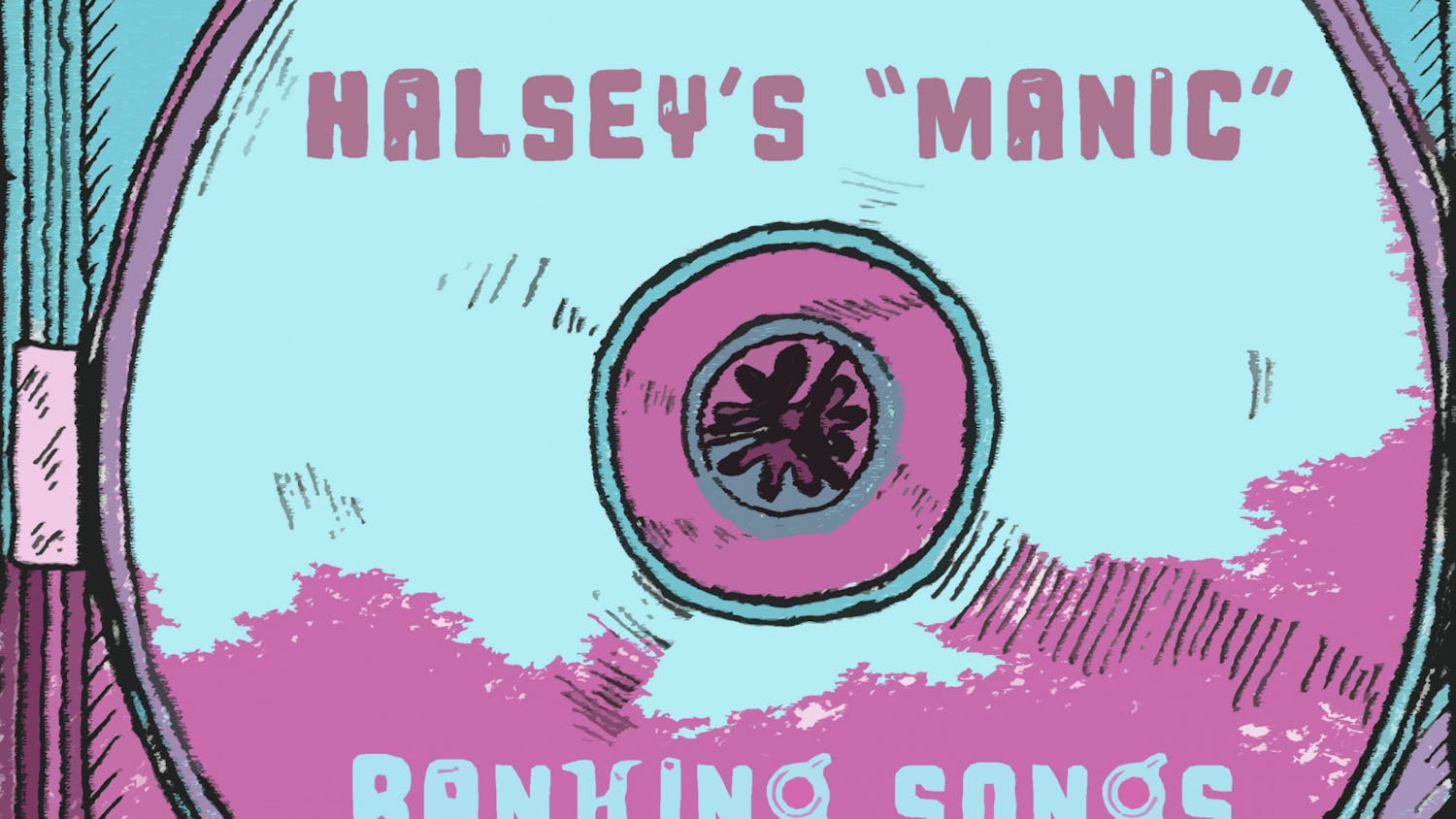In the film “The Black Phone,” the threading of the film's interweaving plots of a small-town killer is punctuated by the needle drop of the song “On the Run.” The Pink Floyd track’s inclusion in the film quickly creates a rising tension leading into the final act of the film.
“On the Run'' is one of 10 tracks on Pink Floyd’s eighth studio album “The Dark Side of the Moon.” Since its release in 1973, the album has garnered critical and commercial success and has cemented itself in the consciousness of music fans. However, Pink Floyd’s music was not always associated with the conceptual and psychedelic.
The band’s early songs like “See Emily Play,” were written by former frontman Syd Barrett. The song’s pop inspirations were reminiscent of contemporary British pop rock. By the band’s second studio album, Barrett was ousted by the band. His departure allowed the group to further explore different genres and themes within its music.
By the time the album “Meddle” was released, the band had found its sound in “Echoes.” Running for 23 minutes and 34 seconds, the track takes up half of the album’s run time. Interested in establishing a tone, the first three minutes of the song are dedicated to an instrumental introduction that shows the band’s budding interest in more conceptual music.
After scoring the film “La Vallée” the band released its next album “The Dark Side of the Moon.” Inspired by the song “Echoes” the band sought to create an entirely conceptual album, one that forefronts the art of creation to the music. The result is an interweaving audio experience with songs that exist both as singular tracks and parts of a larger piece.
The opening track, “Speak to Me,” serves as an overture to the piece, cutting in sound bites and musical cues from other songs. The psychedelic blend of sequencers, guitars and audio establishes the tracks to follow.
Olivia Rohling, in her top ten Pink Floyd songs, picks “Us and Them” as one of the album's standouts. Aside from the strong opening instrumental, the song speaks to a deeper tension formed through classism and nationalism. Historical rhetoric of us vs. them foments in this track.
Writers like Hannah Burkhart gravitate to the song “Time,” which speaks to the ephemeral nature of time. The song's interest in the passage of time speaks to the larger anxiety between one’s life up to the moment.
The album’s themes are drawn from the band's own personal experiences in touring. Songs like “The Great Gig in the Sky” and “Money” become clear reflections on death and money. The songs’ individual themes help them to stand out as tracks but weave together to reflect a more personal experience.
The song’s interconnected harmonies demonstrate the interlocking themes. “Money” is one of the album's two singles; however, it can’t be excluded from the album. Instead, each song depends on the next to interweave its themes and harmony to create a singular work of art.
The final track, “Eclipse,” acts as a summation of the album and the concepts itself, with the use of the repeating lyric “All that …” The album becomes a reflection on life, and the revelation of one’s position comes in the form of the titular eclipse. The song’s tapering beat loops back into the opening track of the album.
Since its inception, the album has pushed the boundaries of music and art itself. Its fiftieth anniversary has brought a new set of eyes to the work and a competition for animated music videos to promote a new era of retrospection and creation from the band’s formative work.
Benjamin Ervin is a senior studying English literature and writing at Ohio University. Please note that the views and opinions of the columnists do not reflect those of The Post. Want to talk more about it? Let Benjamin know by emailing him be425014@ohio.edu.






